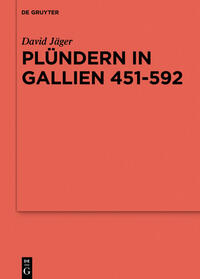
The author investigates the relevance of the socio-economic practice of plunder for organizing subsequent economic activities in Gaul from 451 to 592. The study offers new insights into economic and social history. In addition, methodological reflections about terminology and historiographical works disclose new perspectives for historical research beyond the express theme and period.